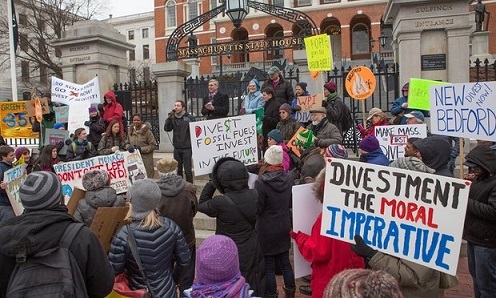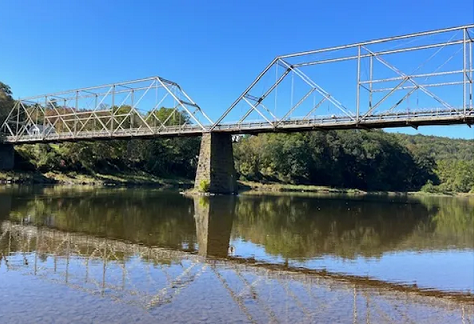Live in the DRB? DCS is Fighting for Your Health!
February 20, 2017Tell the PA Attorney General to Investigate the DEP
March 21, 2017By Emma Howard, The Guardian, June 23, 2015
What is Fossil Fuel Divestment?
Divestment is the opposite of investment – it is the removal of your investment capital from stocks, bonds or funds. Divestment is perhaps most well known for its role in the fight against apartheid in South Africa. The global movement for fossil fuel divestment is asking institutions and individuals to move their money out of oil, coal and gas companies. It is the fastest-growing divestment campaign in history and could cause significant damage to these companies. Almost all of the arguments in favor of fossil fuel divestment fit into two categories: moral and financial.
The Moral Argument for Fossil Fuel Divestment
Scientific research shows that in order to limit global warming to a 2C rise and thus prevent catastrophic levels of climate change, at least two-thirds of fossil fuels reserves need to remain in the ground. Fossil fuel companies want to extract these reserves and sell them, and are actively prospecting for more. In doing so they are setting the human race on a route to irreversible climate change that will cause rising seas, flooding, droughts, rising disease, increased conflicts and refugee crises. Desmond Tutu has said that “people of conscience need to break their ties with corporations financing the injustice of climate change”.
The Financial Argument for Fossil Fuel Divestment
If international agreements on climate change are met, investments in fossil fuel reserves will become “stranded assets” (ie worthless). We may currently be in a trillion dollar “carbon bubble” that, when it bursts, could plunge the world into another economic crisis. Governor Mark Carney of the Bank of England has said that “the vast majority of reserves are unburnable.” World Bank president Jim Yong Kim has said that “every company, investor and bank that screens new and existing investments for climate risk is simply being pragmatic”. You can protect your own investments from a “carbon bubble” by divesting from fossil fuels now.
Check out 350.org’s divestment project, Fossil Free.
Find a bank that fits your values.
Check out the divestment movement to stop the Dakota Access Pipeline.




